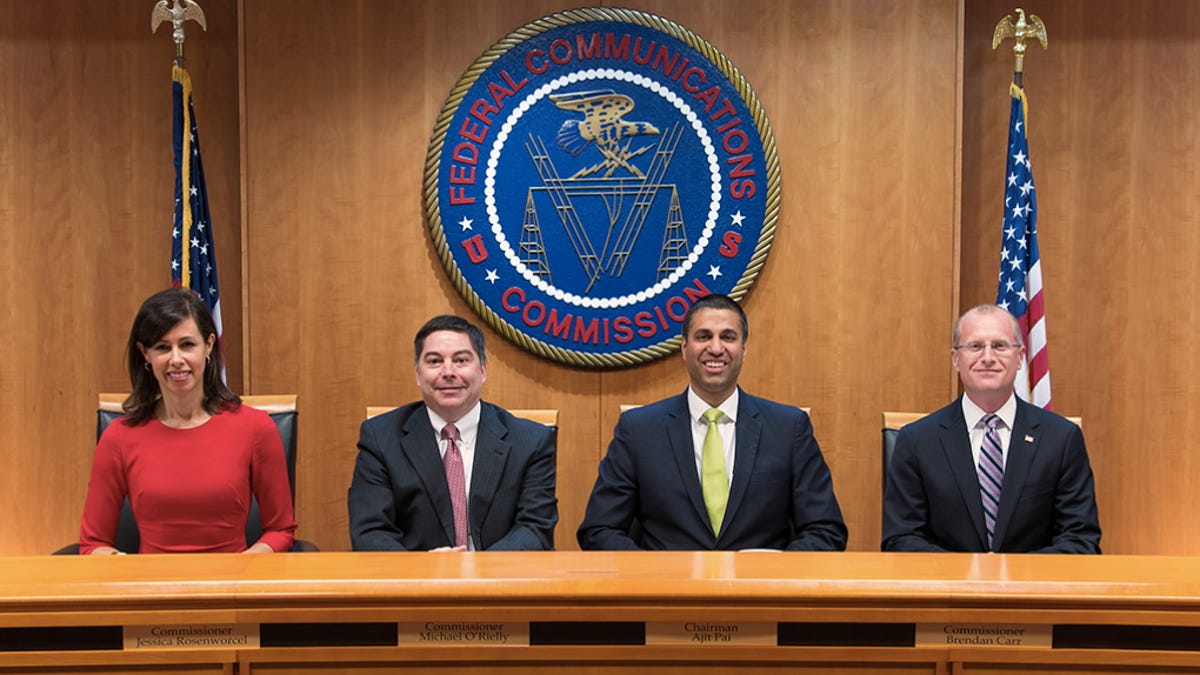FCC's Ajit Pai plans to free up spectrum for 5G, Wi-Fi coverage
Radio airwaves are the lifeblood of wireless communication.

Commissioner Jessica Rosenworcel, Commissioner Michael O'Rielly, Chairman Ajit Pai and Commissioner Brendan Carr.
The Federal Communications Commission is trying to pave a smoother road to our 5G future.
The government agency plans to consider freeing up more radio airwaves for use in 5G networks in its next monthly meeting, FCC Chairman Ajit Pai said in a statement. The commission will look to the 3.5 gigahertz spectrum band as a potential source of radio airwaves. While not the super high-frequency spectrum commonly talked about when looking at 5G networks, 3.5 Ghz has the potential to carry more capacity and speed than lower frequency spectrum used in many of today's networks.
The agency will also look at freeing up the use of 6 Ghz band of unlicensed spectrum for use to bolster Wi-Fi coverage. Wi-Fi runs on two existing frequecies, 2.4 Ghz and 5 Ghz, and adding a new band could alleviate congestion.
Pai said the agency would also look at removing regulations on rural carriers, which he said would let them invest in their networks.
Improving coverage across the country, whether through 5G or better Wi-Fi, has been a priority for the agency and one of the few issues that most people can agree on.

